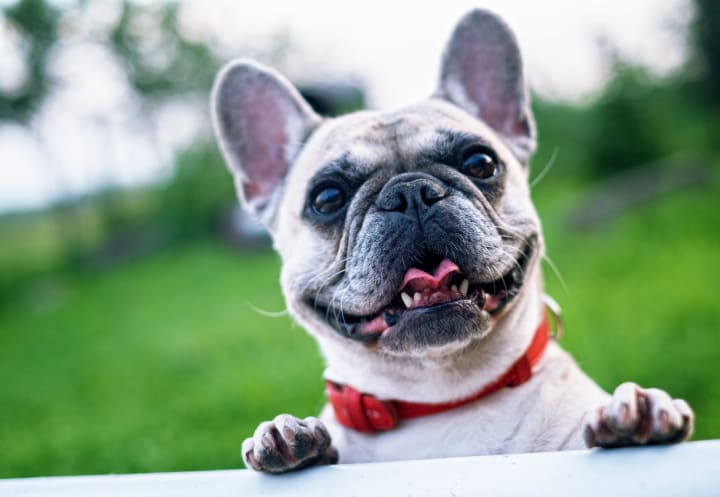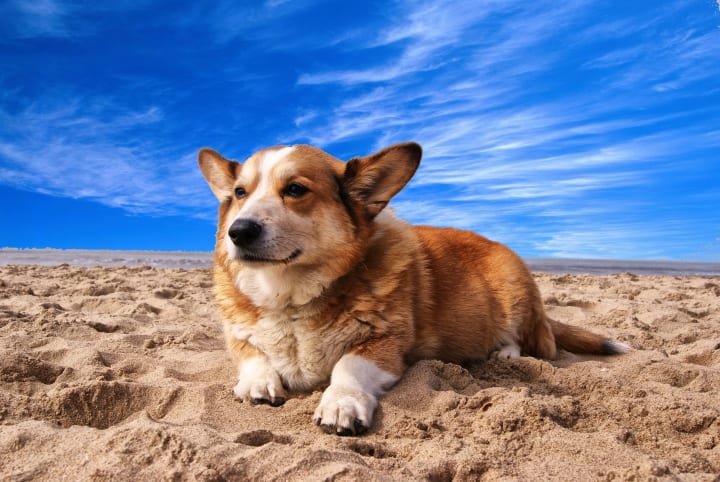The urban legend of dogs waiting to eat you
Understanding dog bonds and dispelling urban myths
In the vast landscape of urban legends and myths surrounding our furry companions, one particularly eerie question often resurfaces: How long will a dog wait to eat you? Let's delve into this intriguing yet morbid inquiry, separating fact from fiction and exploring the unbreakable bond between humans and their loyal canine friends.
The Bond Between Humans and Dogs:
Dogs have long been revered as loyal companions, providing unwavering love and support to their human counterparts. The idea that a dog would turn on its owner, especially in dire circumstances, challenges the very essence of this bond. The truth lies in the profound loyalty ingrained in the canine nature, nurtured through years of domestication.
The Origins of the Myth:
The notion of dogs waiting to consume their deceased owners likely stems from a misunderstanding of natural behaviors observed in certain wildlife species. In nature, scavengers may consume the remains of deceased animals for survival. However, attributing this behavior to domestic dogs fails to consider their social and emotional connection with humans.
Loyalty Beyond Death:
Dogs form strong emotional attachments to their owners, often displaying grief and distress when separated. Numerous documented cases highlight the unwavering loyalty of dogs who remained by their deceased owner's side, refusing to leave. This loyalty transcends the physical presence of their human, debunking the macabre notion that dogs would resort to cannibalism.

The Role of Instinct:
While dogs share common ancestry with wolves, they have evolved alongside humans for thousands of years. Domestication has significantly altered their instincts, emphasizing cooperation and companionship over predatory behaviors. Dogs rely on their human families for sustenance, care, and companionship, making the notion of a dog resorting to cannibalism highly unlikely.
Understanding Canine Grieving:
Dogs experience grief in a manner strikingly similar to humans. When faced with the loss of an owner, they may exhibit signs of distress, depression, and mourning. These behaviors emphasize the emotional depth of the human-canine bond and further disprove the notion that a dog would consider its deceased owner as a potential food source.
Respect and Responsible Ownership:
As responsible pet owners, it's crucial to approach these discussions with a balanced perspective. While debunking myths is essential, it's equally important to recognize the emotional needs of our canine companions. Regular veterinary care, a balanced diet, and providing mental stimulation are key components of responsible ownership that contribute to a healthy and contented dog.
Strengthening the Human-Canine Connection:
As we debunk myths surrounding canine behavior, it becomes evident that nurturing the human-canine connection is essential. Dogs thrive on positive interactions, love, and a sense of security. Building trust through training, communication, and attentive care strengthens this bond, fostering a relationship built on mutual respect and understanding. By investing time in understanding our pets' needs and behaviors, we pave the way for a harmonious coexistence that dispels unfounded fears and celebrates the genuine loyalty that defines our relationship with man's best friend.

The Importance of Responsible Information Sharing:
In a digital age where information spreads rapidly, it's crucial to exercise caution and responsibility in sharing content related to our beloved pets. Misinformation and sensationalized stories can perpetuate unfounded fears and misconceptions. By fostering a culture of fact-checking and promoting accurate knowledge, we contribute to a better understanding of the intricate relationships we share with our canine friends. Remember, responsible ownership involves not only caring for our pets but also ensuring that the information we share reflects the true nature of these remarkable bonds.
The idea of a dog waiting to eat its deceased owner is a grim myth rooted in misunderstanding and misinterpretation of canine behavior. Our loyal companions are more likely to grieve and display unwavering loyalty than to resort to instinctual behaviors associated with survival in the wild. As we continue to unravel the mysteries of the human-canine connection, let us appreciate the profound loyalty and companionship that our dogs bring into our lives, debunking myths that tarnish the true nature of this extraordinary bond.
About the Creator
ZEYAD RABAIAH
Meet Zeyad, an experienced journalist on the mission of revealing the network's news and facts. With great care for accuracy and commitment to the truth.







Comments
There are no comments for this story
Be the first to respond and start the conversation.